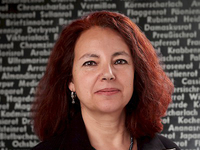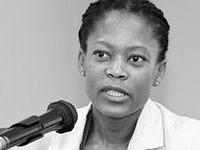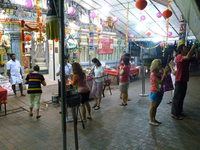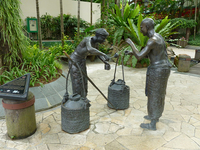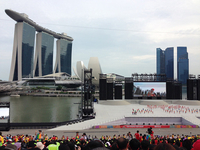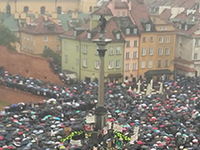GD 7.1 - March 2017
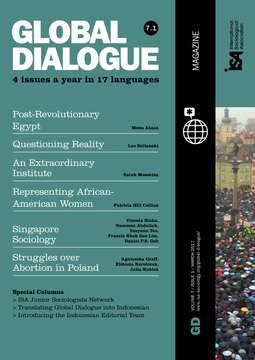
Global Dialogue is available in multiple languages!
Select the language to download the issue.
Editors:
Michael Burawoy.
Associate Editor:
Gay Seidman.
Managing Editors:
Lola Busuttil, August Bagà.
Media Consultant:
Gustavo Taniguti.
Consulting Editors:
Margaret Abraham, Markus Schulz, Sari Hanafi , Vineeta Sinha, Benjamín Tejerina, Rosemary Barbaret, Izabela Barlinska, Dilek Cindoğlu, Filomin Gutierrez, John Holmwood, Guillermina Jasso, Kalpana Kannabiran, Marina Kurkchiyan, Simon Mapadimeng, Abdul-mumin Sa’ad, Ayse Saktanber, Celi Scalon, Sawako Shirahase, Grazyna Skapska, Evangelia Tastsoglou, Chin-Chun Yi, Elena Zdravomyslova.
REGIONAL EDITORS
Arab World: Sari Hanafi , Mounir Saidani.
Argentina: Juan Ignacio Piovani, Pilar Pi Puig, Martín Urtasun.
Bangladesh: Habibul Haque Khondker, Hasan Mahmud, Juwel Rana, US Rokeya Akhter, Toufi ca Sultana, Asif Bin Ali, Khairun Nahar, Eashrat Jahan Eyemoon, Kazi Fadia Esha, Helal Uddin, Muhaimin Chowdhury.
Brazil: Gustavo Taniguti, Andreza Galli, Ângelo Martins Júnior, Lucas Amaral, Benno Alves, Julio Davies.
India: Ishwar Modi, Rashmi Jain, Jyoti Sidana, Pragya Sharma, Nidhi Bansal, Pankaj Bhatnagar.
Indonesia: Kamanto Sunarto, Hari Nugroho, Lucia Ratih Kusumadewi, Fina Itriyati, Indera Ratna Irawati Pattinasarany, Benedictus Hari Juliawan, Mohamad Shohibuddin, Dominggus Elcid Li, Antonius Ario Seto Hardjana.
Iran: Reyhaneh Javadi, Abdolkarim Bastani, Niayesh Dolati, Marjan Namazi, Vahid Lenjanzade.
Japan: Satomi Yamamoto, Fuma Sekiguchi, Yutaro Shimokawa.
Kazakhstan: Aigul Zabirova, Bayan Smagambet, Adil Rodionov, Gani Madi.
Poland: Jakub Barszczewski, Paulina Domagalska, Adrianna Drozdrowska, Łukasz Dulniak, Anna Gańko, Krzysztof Gubański, Kinga Jakieła, Justyna Kościńska, Kamil Lipiński, Mikołaj Mierzejewski, Karolina Mikołajewska-Zając, Adam Müller, Zofi a Penza, Teresa Teleżyńska, Anna Wandzel, Jacek Zych, Łukasz Żołądek.
Romania: Cosima Rughiniș, Raisa-Gabriela Zamfi rescu, Costinel Anuța, Maria-Loredana Arsene, Tatiana Cojocari, Florina Dincă, Andrei Dobre, Diana Alexandra Dumitrescu, Iulian Gabor, Rodica Liseanu, Mădălina Manea, Mihai-Bogdan Marian, Anca Mihai, Andreea Elena Moldoveanu, Oana-Elena Negrea, Mioara Paraschiv, Ion Daniel Popa, Susana Popa, Diana Pruteanu Szasz, Ioana Silistraru, Adriana Sohodoleanu, Andreea Vintilă.
Russia: Elena Zdravomyslova, Anna Kadnikova, Asja Voronkova, Lubov’ Chernyshova.
Taiwan: Jing-Mao Ho.
Turkey: Gül Çorbacıoğlu, Irmak Evren.
GD 7.1 - March 2017
Editorial
What’s Next?
For all our sophisticated survey research very few predicted the election of Donald Trump. This suggests US sociologists have a limited knowledge of their own country. While there are notable studies of right-wing movements – and we published one by Arlie Hochschild two issues ago (GD6.3) – they are vastly outnumbered by studies of leftist-oriented movements. No different from others, sociologists gravitate toward people who think and act like themselves, studying movements opposing discrimination, inequality, and xenophobia. To better understand others is not a matter of suppressing our values and commitments – or pretending we have none – but of becoming more conscious of them. And it will also require immersing ourselves in alien communities.
The importance of such work is amply clear from articles, in this issue and the last issue, that examine struggles over abortion rights. Agnieszka Graff and Elżbieta Korolczuk examine the politics that drive the anti-gender movement in Poland and how it is connected to broader anti-globalization sentiments. Julia Kubisa describes the remarkable umbrella movement – the anti-government protest – that swarmed into the streets of Poland. The streets can be a site of protest but also of militarization, which is the topic of Mona Abaza’s tracing of the events that led from the Egyptian January 25th Revolution to the counter-revolution led by General El-Sisi.
In this issue we also publish an interview with the renowned French sociologist, Luc Boltanski. He offers a pithy summary of his sociology of critique, stemming from the gap between institutional reality and experiences of the concrete world. Collisions and disruptions have intensified as national institutions increasingly clash with our globalized worlds. This is also the theme of the five articles on Singapore’s sociology. They explore the trajectory of this small nation as well as of its distinctive sociology, following the death of its first Prime Minister, Lee Kuan Yew. The essays underline the divergence between ruling ideology and lived reality in such areas as social mobility, ethnicity, religion, and politics.
From Asia we turn to Africa, specifically South Africa where, over the last two years, universities have been the scene of much political turbulence. Here, however, we draw attention to a wonderful academic program initiated by the government and directed by sociologist Sarah Mosoetsa. Her institute pioneers the support of PhD students, conferences, book awards, and publications in the area of the social sciences and humanities.
We also publish an interview conducted by Labinot Kunushevci, a young sociologist from Kosovo, who talks to the famous feminist African-American sociologist, Patricia Hill Collins. This issue also contains an introduction to Global Dialogue’s Indonesian team with a foreword that describes some of the challenges of translation. We end with Oleg Komlik’s reminder of the very important work of the ISA Junior Sociologists Network. This is one of the most important projects of the ISA – supporting the next generation of sociologists.
Michael Burawoy, editor of Global Dialogue
Global Dialogue can be found in multiple languages.
Submissions should be sent to globaldialogue@isa-sociology.org.

